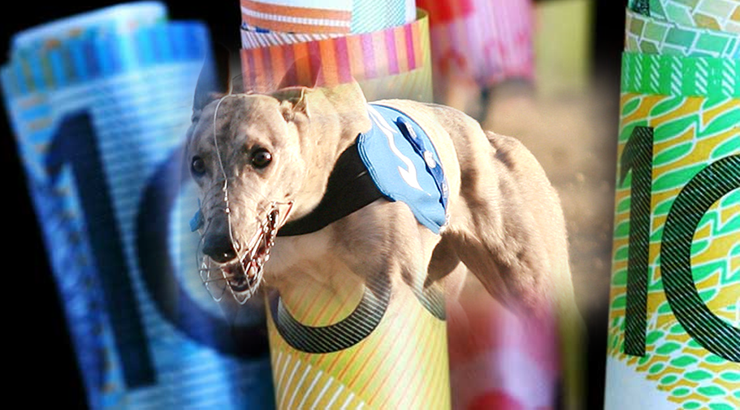by Warren Young, Coalition for the Protection of Greyhounds
Only 31% of the Australian population support greyhound racing. Further, there is very little support for state governments subsidising the industry (19%), and only 6% of the population think the industry is “very important” for the economy.
These are the results from a National survey commissioned by CPG and GREY2K USA Worldwide to investigate the attitudes of Australians to greyhound racing. The table below also shows levels of support as a function of betting experience.
| Whole sample (804) | Never bet | Have bet |
Support greyhound racing | 31 | 17 | 71 |
Keep greyhound racing legal | 34 | 22 | 69 |
Support government subsidies to the industry | 19 | 9 | 46 |
Greyhound racing is very important for the economy | 6 | 1 | 20 |
As small as these numbers are in the left column, the table reveals that they are inflated by gamblers (column on the right). Most of the Australian population have never placed a bet on greyhound racing and from this group (middle column), there is even less support for the industry. For example, only 17% indicated support of the industry, only 9% approved of government subsidies, and only 1 % thought it was “very important” for the economy.
The contrast in the statistics between those people that have or have not ever bet on greyhound racing is revealing. It shows that support for greyhound racing is based purely on gambling, and that government subsidies are just promoting gambling activity. State governments spend millions of taxpayer dollars on grants and subsidies to prop up the dog racing industry, and this goes against the wishes of their constituents, so they are clearly out of step with the people they are supposed to represent.
Why is this happening, and what motivates governments to do this? There are a number of reasons:
- Incentives from the gambling lobby. Research from Monash University analysed 10 years of donations to political parties, and found that large donations were given to both major parties as well as individual politicians. These donations were often timed to specifically influence gambling policy decisions. A recent article in the Financial Review stated that the gambling industry spent more money on lobby firms than the alcohol and tobacco industries, and provided political donations of over two million dollars in a year. Gambling contributes as much as 10% of all declared political donations. These incentives relate to several forms of gambling, including greyhound racing.
- Gambling revenue. Another reason that governments support greyhound racing is the lust for gambling taxes to be added to their coffers. The exact amount of money generated by gambling taxes is not publicly available, but is millions of dollars. For a nation that gambles and loses more money per head of population than any other country in the world, this is immoral.
- Industry inducements. Members of Parliament are given “sweeteners” by the industry to win them over. These include things like free passes to racing events and free food and drink at various events.
- Inflated economic impact. The industry promotes a false perception that it contributes significantly to the economy eg jobs.
- Misplaced trust in industry regulation. There is a false belief that the industry can be adequately regulated, and therefore greyhound welfare and integrity will be taken care of. Regardless of any new policies pitched at a sustaining the industry, greyhounds are still being killed and injured on and off the track, and some industry participants are still abusing dogs.
Greyhound racing as a “sport”
Isn’t it interesting that in popular sports, many athletes are “household names”?
Australians love their sports, and probably most people could name a high-profile athlete from popular sports such as Australian rules football, rugby league, soccer, netball, basketball, and Olympic sports like swimming and winter sports. The average Australian could probably even recall the names of famous racehorses, but what about racing greyhounds? My guess is that the typical Aussie would not be able to name a single racing dog.
Why? Because greyhound racing has zero appeal and popularity as a “sport”, which is indicated by almost empty racetracks around the country. The only people that care about greyhound racing other than industry participants are punters who place bets on dogs they have no interest in, except for the betting odds they can provide.
In other words, racing greyhounds are not seen as athletes by the public to follow with interest, but as commodities that have money-making potential. With that being the case, can someone please explain why there is a need to gamble on the lives of real dogs?

